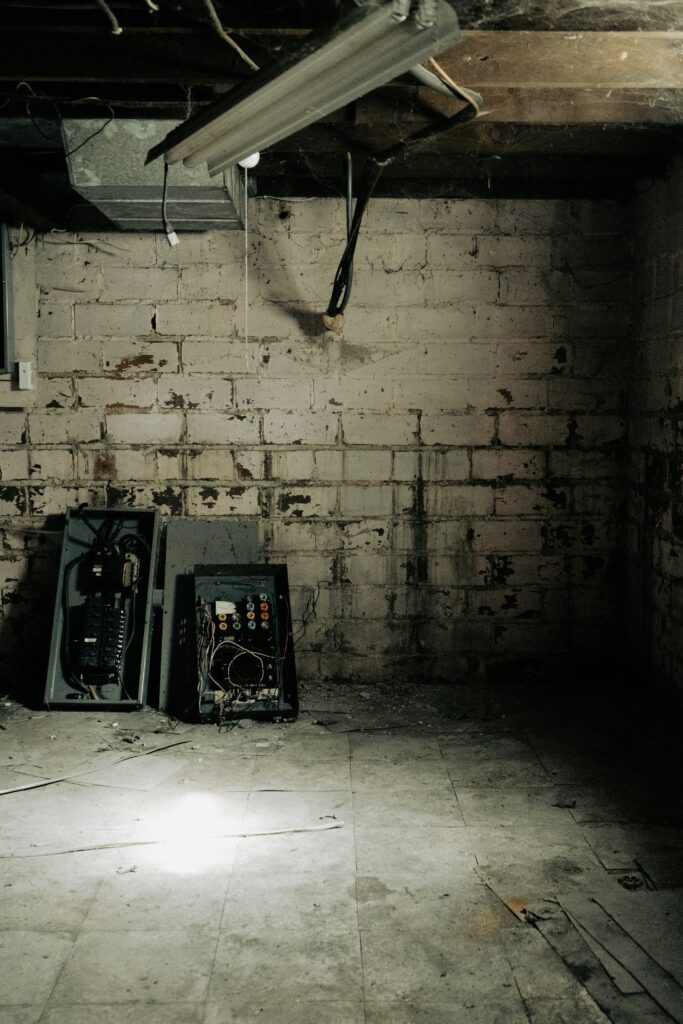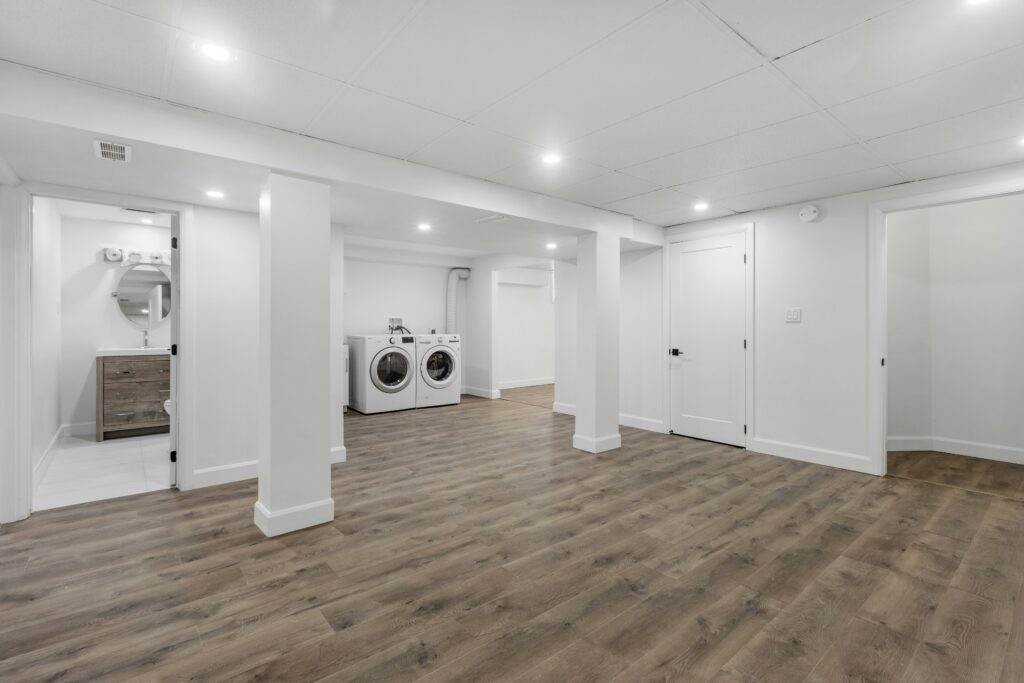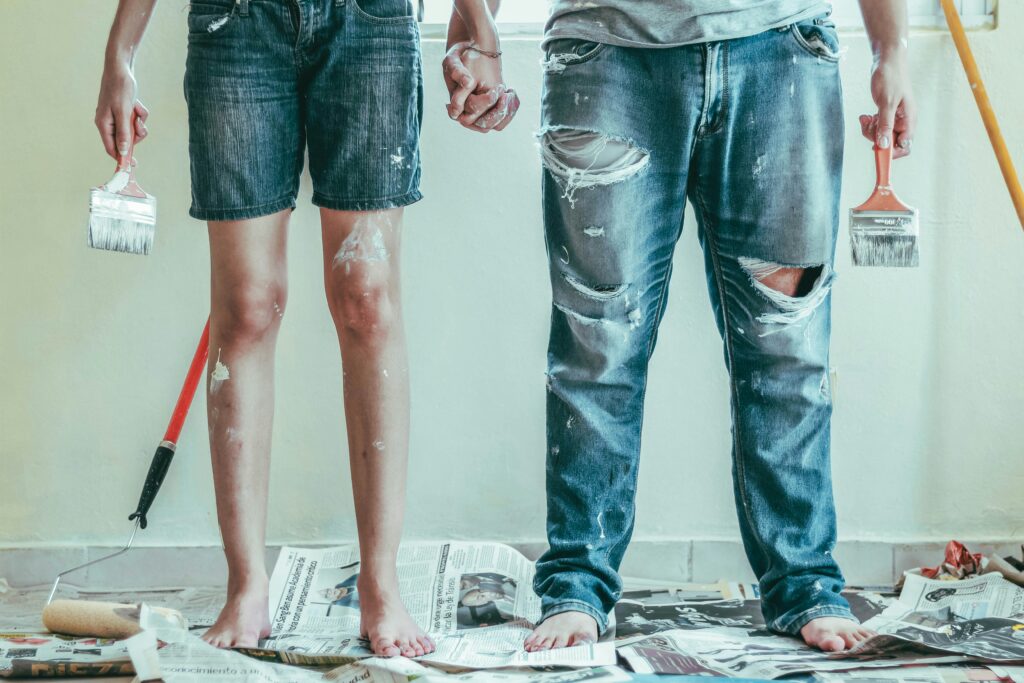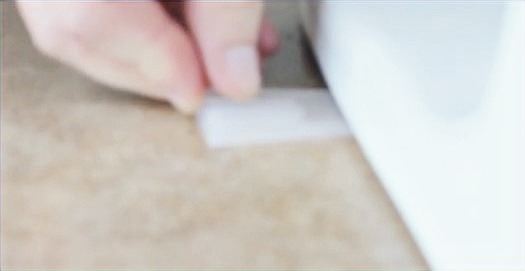Last Updated on June 19, 2024 by John Coleman
Owning a home with a basement can be a luxury and a potential problem if not properly maintained. A frequent issue with basements is water seeping inside without the homeowners knowledge. Ignoring this can have significant consequences including structure weakening, deterioration of materials, as well as creating an environment where mold thrives. If not addressed, it will only lead to more costly repairs and health risks to your and your family. The best way to fix this critical issue is basement waterproofing.
The signs that indicate the need for basement waterproofing are:
- Dampness
- Water stains on the walls
- Musty Odors
- Cracks in the foundation
- Water on the floors or walls and in the corners
Many homeowners may consider fixing this issue with DIY fixes. However, this is a job that requires the skills of an expert who specializes in basement waterproofing and foundation repair. It is important to understand there are likely multiple aspects that need to be addressed that require specialized knowledge and tools to correctly address the issue.
Have you ever heard the dreaded sound of water trickling into your basement on a stormy night? Or perhaps you’ve caught a whiff of an unpleasant musty odor rising from the depths of your home? If these scenes are familiar, it’s time to dive into the importance of basement waterproofing which is a type of home foundation repair. You might not pay much heed to the lowermost level of your home, but in reality, it’s one of the most crucial areas to protect. In this extensive guide, we’ll walk through why basement waterproofing is not just an idea, but a necessity, the different methods available, and how it can benefit property owners in various ways.

The Importance of a Dry and Waterproof Basement
A dry basement may not seem like a significant concern, especially when you have a long list of home maintenance tasks. However, the basement’s role as the foundation of your home, coupled with its potential as a living space, makes it a vital area to keep dry and stable. A waterproofed basement ensures that your property stands strong and your family is safe from the health hazards that water intrusion could bring.
Why Basement Waterproofing Is Essential
Water is a relentless force, and when it finds its way into your home, it can cause significant damage. Water penetration can weaken the structure, deteriorate materials, and create an environment where mold thrives. In the long term, failing to address basement water issues can lead to costly repairs and even jeopardize the safety of your home’s occupants.
If you purchase through links on this site, we may earn a small commission. See our affiliate disclosure.
Signs of Basement Water Problems
Sometimes, water issues are not as obvious as an indoor pool forming in your basement. Early detection is key to preventing extensive damage, and for that, you need to know the telltale signs.
Dampness or Water Stains
Inspect the walls and floor for any moistness, discoloration, or peeling paint, which can indicate water is seeping in through cracks or porous surfaces.
Musty Odors
If a persistent musty smell lingers in the basement, it’s likely a result of trapped moisture and the onset of mold growth, a sign of water intrusion. Musty odors are typically a sign of a more significant problem.
Cracks in the Foundation
Even small cracks can be an entry point for water and they’re often a symptom of underlying issues that need attention. You should address cracks in your foundation promptly.
Types of Basement Waterproofing Methods
Once you’ve identified that you have a water problem, the next step is finding a solution. There are several waterproofing methods, each with its own advantages and appropriate applications.
Exterior Waterproofing
This method involves excavating the perimeter of your home to apply a waterproof coating on the foundation and installing a system to direct water away from the structure.
Interior Waterproofing
Unlike exterior methods, interior waterproofing is done from within the basement, using sealants to block water and manage the water flow with the floor and wall solutions.
Drainage Systems
Installing an interior or exterior French drain can efficiently collect and divert water from the basement, keeping it dry.
Sump Pumps
Combining a sump pump with a well and drain system is a popular way to actively manage groundwater, ensuring any accumulated water is swiftly removed from the basement.

Benefits of Basement Waterproofing
The investment in basement waterproofing is far more than just a protective measure— it can enhance your property’s value and the quality of living in your home.
Increased Property Value
A dry basement offers peace of mind to both present and future homeowners. It demonstrates the home has been maintained well and reduces the risk of potential issues that could deter buyers.
Healthier Indoor Environment
Reducing the chances of mold and mildew not only protects the structure but also ensures the air your family breathes is clean, preventing respiratory problems that mold can exacerbate.
Protection of Belongings
From family heirlooms to the latest in home technology, our belongings matter. Waterproofing safeguards them from water-related damage, keeping your basement a safe storage space.

Costs and ROI of Basement Waterproofing
Understandably, the cost of investing in waterproofing can be a concern, but when compared to the expenses of extensive water damage, it becomes a clear and essential choice.
Factors Affecting the Costs
The size of the basement, the method chosen, and the severity of the water issue all influence the cost. A professional assessment can provide a more accurate estimate tailored to your specific circumstance.
Long-Term Savings and Return on Investment
While the initial outlay can be substantial, the long-term savings from avoiding costly water damage repairs and potential reduction in home insurance premiums can make the return on investment very attractive.
DIY vs. Professional Waterproofing
Deciding whether to take on waterproofing as a DIY project or to enlist the help of professionals is a critical decision, and each path has its merits.
Pros and Cons of DIY Approach
DIY kits and solutions are readily available and can save you some money. However, they’re often best suited for small, easily identifiable problems. Tackling more significant issues without expertise can lead to wasted time and money if the problem isn’t fixed effectively.
Benefits of Hiring Professionals
Professional waterproofing companies bring knowledge, experience, and the ability to diagnose complex water issues. They also offer warranties, ensuring their work is backed by a commitment to keeping your basement dry.

In Conclusion
Basement waterproofing may not be the most thrilling aspect of home improvement, but it’s an investment in the longevity and safety of your property. By understanding the critical need for a dry basement and the various methods available, homeowners and property managers can make informed decisions that lead to a more secure and valuable home.
If you purchase through links on this site, we may earn a small commission. See our affiliate disclosure.
Frequently Asked Questions
Q: What is basement waterproofing?
A: Basement waterproofing refers to techniques and solutions utilized to prevent water from entering the basement of a house or any other building.
Q: Why is basement waterproofing important?
A: Basement waterproofing is essential to maintaining the structural integrity of your home, preventing potential water damage, reducing the risk of mold growth, and potentially improving your home’s value.
Q: Can I waterproof my basement myself?
A: Yes, for minor issues, DIY solutions are available. But for complex or severe problems, it is recommended to hire professionals to ensure effective and long-lasting treatment.
Q: What is the cost of professional basement waterproofing?
A: The cost can vary greatly depending on the problem severity and the size of the area that requires waterproofing. It’s best to get a professional estimate for an accurate figure.
Q: Does professional waterproofing come with a warranty?
A: Most professional waterproofing companies offer warranties for their work, providing reassurance that the work will last and that any issues will be addressed. Always check the terms and conditions of the warranty before proceeding.
Q: Can waterproofing impact my home insurance premiums?
A: Some insurance companies may offer reduced premiums if you have carried out preventive measures like basement waterproofing, as it can mitigate the risk of water damage. It’s best to check with your specific insurer.







